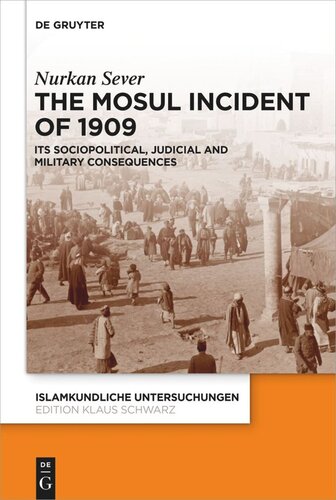

Most ebook files are in PDF format, so you can easily read them using various software such as Foxit Reader or directly on the Google Chrome browser.
Some ebook files are released by publishers in other formats such as .awz, .mobi, .epub, .fb2, etc. You may need to install specific software to read these formats on mobile/PC, such as Calibre.
Please read the tutorial at this link: https://ebookbell.com/faq
We offer FREE conversion to the popular formats you request; however, this may take some time. Therefore, right after payment, please email us, and we will try to provide the service as quickly as possible.
For some exceptional file formats or broken links (if any), please refrain from opening any disputes. Instead, email us first, and we will try to assist within a maximum of 6 hours.
EbookBell Team

4.0
6 reviewsThe primary objective of this book is to unearth the Mosul Incident, place it in a historical narrative and introduce it to the literature. Despite creating a historical turning point, the incident has not attracted the necessary attention in neither the Ottoman nor Iraqi historiography until now. By interpreting the preferences, policies and practices associated with this particular incident, the book is engaged to analyze the Post-Constitutional power shifts, perceptions of collective violence and the origins of Arab-Kurdish Dispute.
The banishment and murder of Sheikh Said Barzanji who was the family head of Sadaat al-Barzanjiyya as the most influential religious organization of region, created a critical threshold in the history of Mosul. As the urban shootout on January 5 turned into a provincial bloodshed, Kurdish Sayyids, tribes and religious orders consolidated and revolted against the Ottoman authorities. Governors who were polarized as Anti Sâdât and Pro Sâdât allegedly misconducted their offices and misguided the authorities of law enforcement and judiciary.
By overcoming the historical rupture between Ottoman Mosul and Modern Iraq, the book introduces an analytical framework to associate the origins of collective violence and ethnic fragmentation experienced in today’s Iraq with the past.